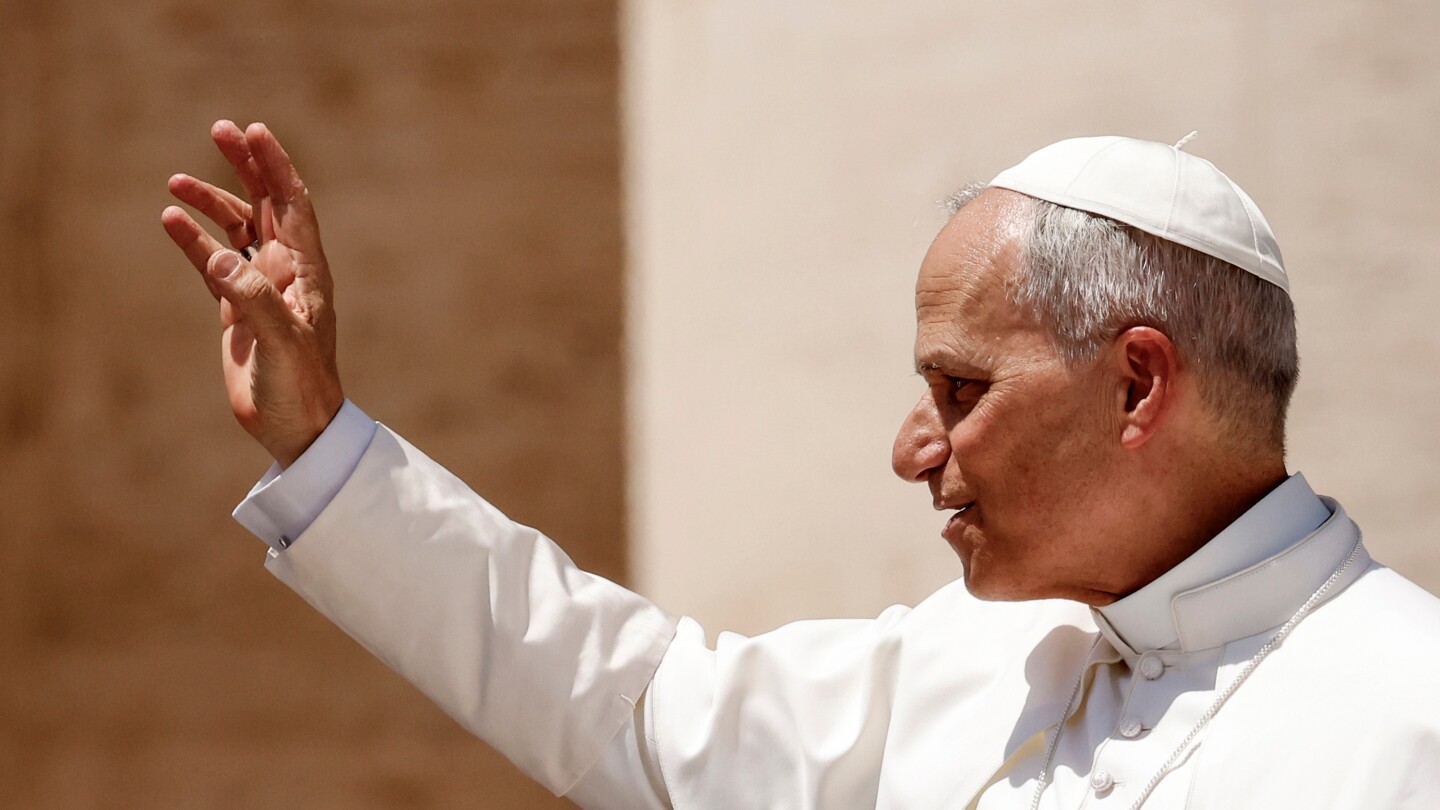Pope Leo XIV waves to the faithful in St. Peter’s Square in Vatican City in June 2025.
Shutterstock
Religious freedom analysts are warning Pope Leo XIV not to conciliate state-sponsored Islamist persecution of Christians and Jews in Turkey, which they allege Turkish President Recep Tayyip Erdoğan undertakes “to creat[e] an ethnically and religiously homogeneous Turkish Sunni Muslim nation.”
In a 50-page report released on November 24, 2025, three days before Leo leaves for his visit to Turkey, the European Centre for Law and Justice urged the pontiff to address the “legal, institutional, and social hostility” facing Turkey’s Christian and Jewish population. Turkey increasingly portrays Christians and Jews as “alien, subversive, or instruments of foreign influence,” the report warns, as Erdoğan ties national identity to Turkish ethnicity and Sunni Islam.
The report traces the decline of the Christian population in the “cradle of Christianity” from around 20 percent in 1915 to less than 0.3 percent today. Only 257,000 Christians and between 12,000 and 16,000 Jews remain in Turkey. “The dramatic demographic collapse of Turkey’s Christian population over the past century is the result of a deliberate, multi-layered policy of elimination—carried out through violence, forced displacement, legal exclusion, and institutional repression,” the report notes.
Turkey increasingly portrays Christians and Jews as “alien, subversive, or instruments of foreign influence,” [a new] report warns.
Armenians, Jews, Christians, Greeks, and Greek Cypriots face persistent vilification, “often through inherited historical narratives reinforced by political rhetoric,” the report states. Documented hate crimes targeting Christians more than doubled between 2021 and 2023, making Christians the most frequently targeted religious group, followed by Alevis and Jews. According to the report, Islamist violence against Christians continues in Turkey. Incidents include an Islamist firing on an association affiliated with the Kurtuluş Protestant Church on New Year’s Eve 2025 and Islamic State gunmen killing an Alevi inside the Santa Maria Roman Catholic Church in January 2024.
Pope Leo will meet Erdoğan and join Ecumenical Patriarch Bartholomew I to commemorate the 1,700th anniversary of the Council of Nicaea. Vatican watchers expect the pontiff to address the theme of Christian unity. Still, “Pope Leo XIV now has the opportunity to express specific concerns regarding Islamist regimes or the situation of Christians in Muslim-majority countries, particularly in Turkey,” Thibault van den Bossche, advocacy officer at the European Centre for Law and Justice, said.
Van den Bossche worried that Turkey might “instrumentalize” the papal visit, “to showcase a facade of ‘tolerance,’” and urged the Pope to “reaffirm the fundamental rights of Christians [and] resist aligning himself with narratives of ‘moderate Islam’ and Turkish secularism that too often serve as a veneer.” “At the very least, Leo can acknowledge that neither ecumenism nor Christian-Muslim dialogue has succeeded in ensuring the effective protection of Turkey’s Christians,” he said.
While Pope Benedict XVI was the last pontiff to speak explicitly about the question of violence within Islam, he subsequently softened his approach, especially during his 2006 trip to Turkey, where he sought to ease tensions. Pope Francis, meanwhile, condemned Islamist attacks but avoided criticizing Muslim governments or political systems, even when they restricted religious freedom. Francis preferred symbolic gestures such as joining the 2019 Abu Dhabi Declaration.
Turkey has expelled more than 200 foreign Christian workers and their families since 2020.
While naming Bangladesh, Nigeria, Mozambique, Congo, and Sudan as countries where “Christians suffer discrimination and persecution,” Leo has refused to call out Islamists as the perpetrators of the violence, which has reached genocidal proportions in Nigeria. In October 2025, meanwhile, Vatican Secretary of State Cardinal Pietro Parolin downplayed the Islamist persecution of Christians in Nigeria and claimed that “it is not a religious conflict, but rather a social conflict, for example, between herders and farmers.”
Leo XIV’s visit comes as the Alliance Defending Freedom International (ADFI) challenges the Turkish government in the European Court of Human Rights for banning the re-entry of U.S. citizen and Christian worker Kenneth Arthur Wiest, who has lived in Turkey since 1985.
Turkey has expelled more than 200 foreign Christian workers and their families since 2020. Between December 2024 and January 2025, Turkey’s Ministry of the Interior issued at least thirty-five new “security codes” against foreign Christians. These include the N-82 and G-87 codes, which ban re-entry by classifying these residents as national security threats.
Vatican analysts cite the failure of recent popes to learn the lesson of appeasing Islamists from Pope Benedict XV, who kept mum when the Ottoman Empire’s murder of between 800,000 and one million Christians in the Pontic Greek and Armenian Genocides.
“Around 140,000 Armenians were Catholics; of that number, around 100,000 perished in the genocide. Armenian church property was confiscated, and churches were turned into mosques, so that the genocide virtually destroyed the Armenian Catholic Church,” historian Jacques Kornberg wrote in The Pope’s Dilemma: Pius XII Faces Atrocities and Genocide in the Second World War.
Instead, Benedict XV wrote a hand-wringing letter to Ottoman Sultan Mehmed V. “Benedict’s letter did nothing more than put the Roman Catholic Church on record as rhetorically opposing mass killing,” Kornberg noted.
The Holy See Press Office and the Vatican’s Dicastery for Interreligious Dialogue did not respond to a request for comment.
© 2025 Middle East Forum • E-mail: info@meforum.org • Tel: 1 (215) 546-5406
